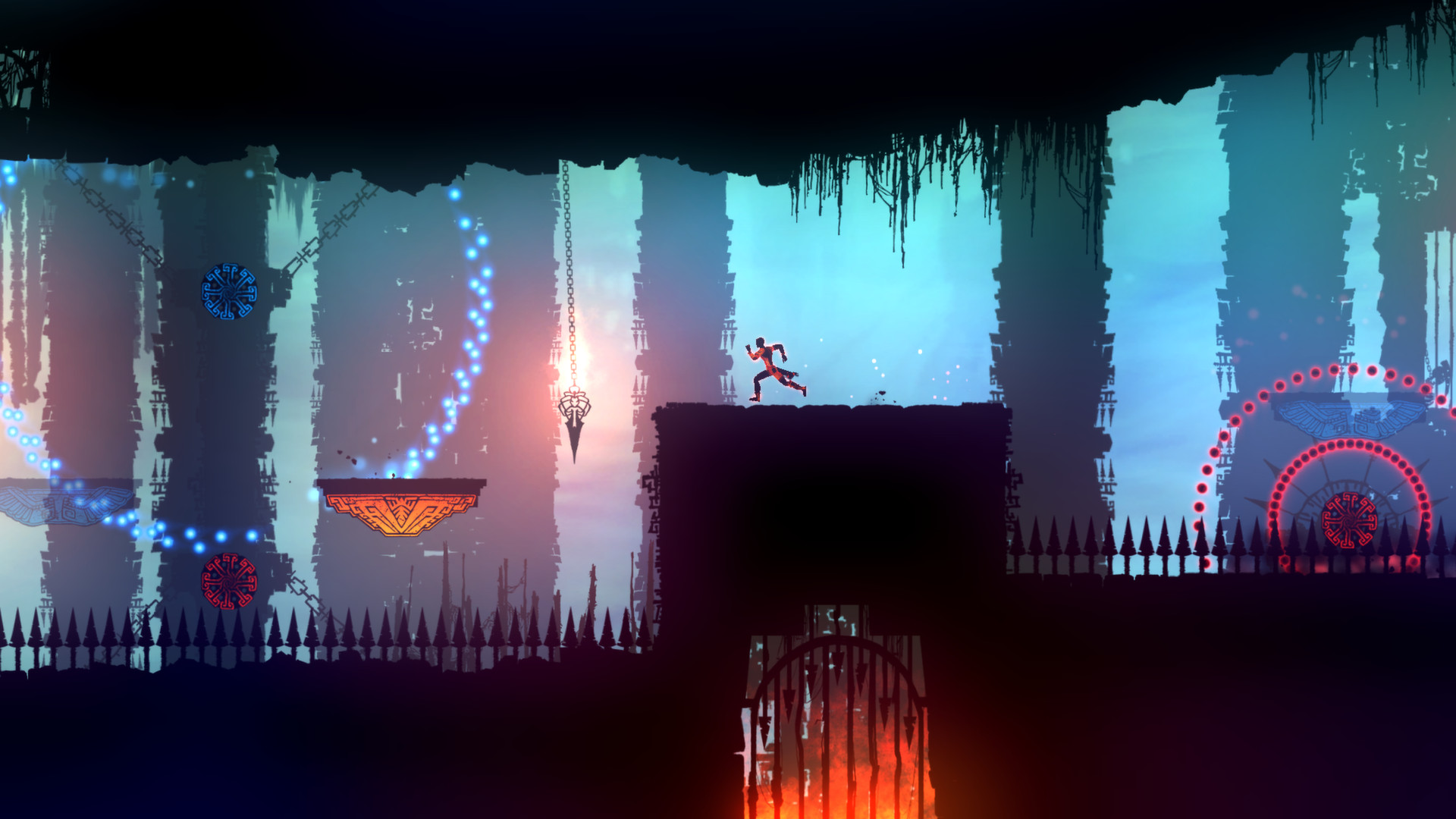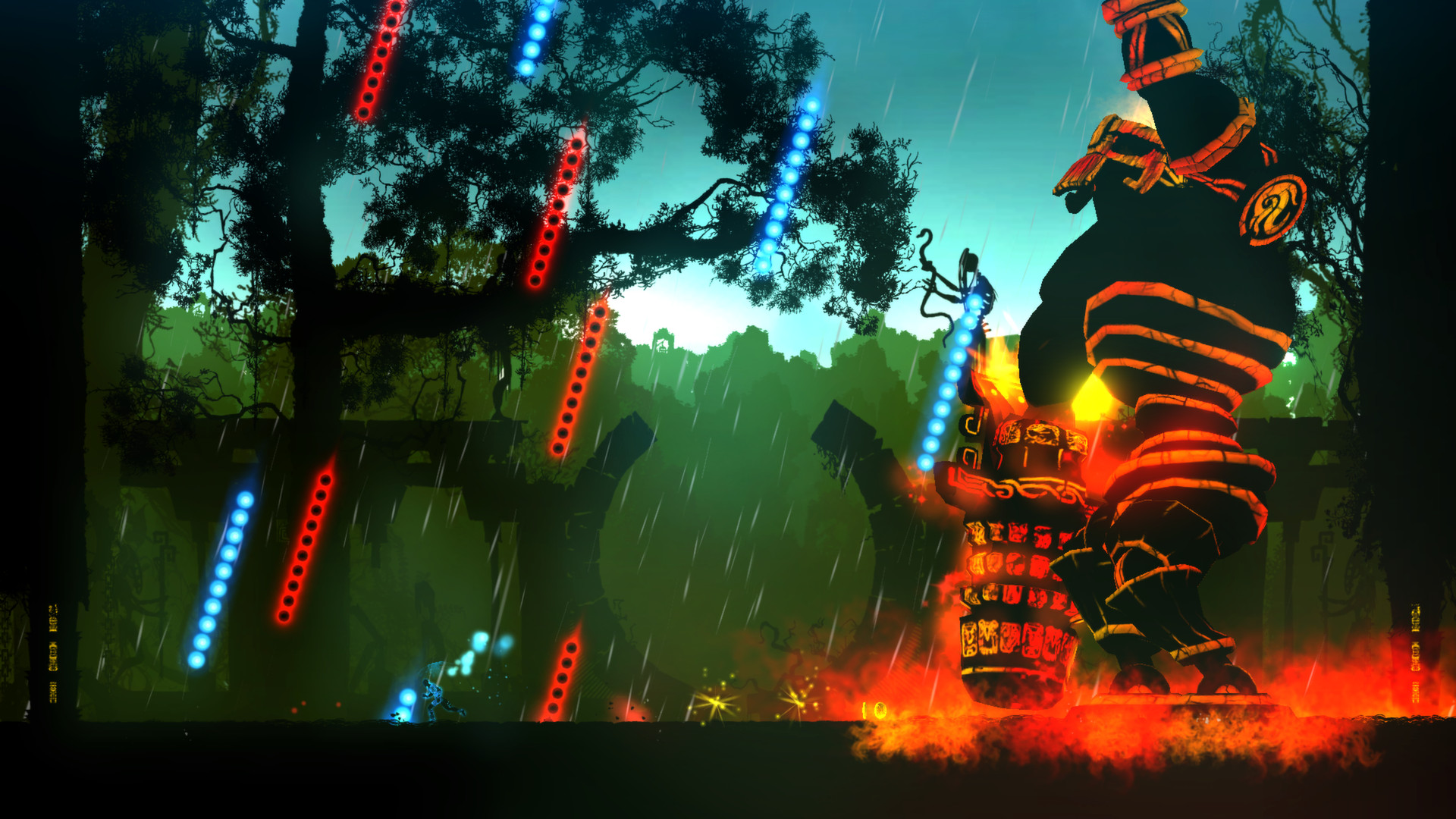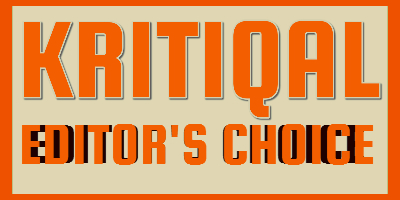Outland - Review
Outland is immediately describable as Ikaruga through the lens of a sidescrolling, Zelda inspired platformer. In a land ruled by warring gods and mystical guardians, you take up the sword and polarity shifting ability of a hero of old; the lone savior able to cleanse the world of the evil that’s crept into it.
To do this you’re required to cut it out at the core, journeying through maze like environments searching out the behemoths that have abandoned their sacred duty for protecting the world and its inhabitants, and kill them before they can cause more harm.
Standing in your way is a gauntlet of enemies, traps, lasers and bullets which in turn correspond to either elements of light or darkness. Fairly early on you gain the ability to switch between these at will, which is when the game opens up and the mechanic becomes a deep and satisfying tool with which to avoid obstacles and take down enemies.

Anything of your same color (blue for light and red for darkness) won’t harm you, but likewise you’re powerless against your enemies until you switch to an opposing color. This creates a frantic and intricate game of timing and precision, with areas often designed to force you into situations where you’re forced to quickly flip back and forth dodging obstacles and landing blows on enemies, becoming most pronounced in the breathtaking boss fights which easily stand as some of the most impressive I’ve ever seen in a 2D game.
Outland operates on very basic systems, but it’s the execution of how it feels to move and exploit them that makes it such an enjoyable and rewarding game to play. Combat is limited and at first clunky and slow, but eventually opens itself into something that feels very powerful and raw as you learn to work within the boundaries and very deliberate timing each attack requires. Platforming is incredibly fast and fluid, relying a great deal on momentum but never feeling as if control is being taken away from the player. Your character becomes an extension of yourself, moving with a speed and precision that I didn’t think I was capable of, but feels incredible all the same.

The beautiful art design paints the game with a minimal color palate, composed of neon red and blue tracing intricate designs through the silhouettes of characters and the environment. It’s absolutely stunning, even more so in motion as your characters moves through the world with impeccably smooth animations while life springs up all around you.
If there are any faults in Outland’s design, it would be its rather weak narrative that sets up far more than is ever delivered on, and the almost nonexistent reward for exploration in levels filled with hidden areas. Aside from a handful of upgrade stations there’s nothing to use the coins you collect from chests and enemies, and with them being more or less the only thing to be found at the end of some of the more treacherous secret paths I eventually began skipping them in favor of surviving until the next checkpoint.
Final Word
Ultimately these amount to little more than grasping at straws for things to dislike about Outland, an otherwise fantastic experience from top to bottom that only becomes more brilliant and engaging the longer it goes on. Developer Housemarque seems almost like a fidgety child with how often it switches genres and styles, but if the results continue being as great as this I can’t’ complain.


